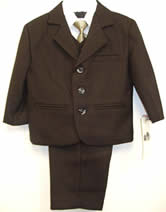
Don’t even think about getting one of these.
So why is it when we are so comfortable doing all of that, yet we become so uncomfortable picking up a phone to talk to an elected official? I think we persuade ourselves that our opinion, our piece of advocacy, isn’t important or relevant and we don’t want to feel that we are wasting someone else’s valuable time. But here is what I know: what we have to say is important and relevant. The truth is the person who was elected to represent us actually does want to hear what you and I think. And our time is valuable as well, so valuable that we have chosen to spend it as advocates.
And there are opportunities to advocate that present themselves in a variety of ways if we are willing to be receptive to them. For example, here in Kentucky, Congressman John Yarmuth often appears on our local public radio station, WFPL. He talks about what is happening in Washington, DC, and is interested in hearing from the listeners. I just happened to be driving home from the grocery store and tuned in to hear that it was time to take listeners calls. Thankfully I only had a five minute drive to the house and was able to park, bring in my purchases, put away those purchases, all while dialing the radio station. I didn’t know if I would get a chance to talk, but I was ready for my moment. The milk was in the fridge and I had my Shot@Life materials ready. While I was on hold I mentally prepared my “elevator speech” and put canned goods in the pantry. When the chance came to talk, I introduced myself and thanked the Congressman for his time, asked my question about the budget and how it related to global vaccines, mentioning that Shot@Life is working to help vaccinate children from measles, pneumonia, polio, and diarrhea (vaccine-preventable diseases kill a child every 20 seconds), and how important this is to our collective community (because germs don’t carry a passport). The Congressman thanked me for my question and call, and answered about how important maintaining the foreign aid budget is, especially when it comes to these issues.

Our advocates need only themselves.
I was an advocate. No having to dress in a suit or carry a heavy briefcase. Just me. Yoga pants and yogurt. And a cause. Because Shot@Life makes a difference. Because children in other nations deserve a shot at the same opportunities in education, in recreation, in life, as children in the United States do. That’s advocacy.
And when follow-up to this brief conversation occurred later that same day at a local RESULTS fundraiser event, I approached the Congressman, thanked him for his time earlier in the day as well as his commitment to support the children of the world. That’s advocacy too.
It isn’t always in DC or a three minute speech in front of a panel. It’s a blog post. A facebook status update. A tweet. It’s a phone call to a radio station. It’s a handshake at a fundraiser. It doesn’t need a power suit, just a powerful message. And a messenger who feels empowered to advocate.
It just needs you.
